|
1.- INTRODUCTION:
Telecommunications has become an
essential basic service –equal in importance to
water, electricity and health. It plays a key role
in the economic and social development of nations,
and is the ideal tool to achieve inclusion and
democratize people’s access to the digital society
of the 21st century.
Within this context, the
Instituto Dominicano de las Telecomunicaciones,
following the explicit directive by President Leonel
Fernández Reyna, has set out to aim its actions and
activities to grant the opportunity to all
Dominicans, with no exceptions, to access
telecommunication services, regardless of their
economic condition or geographical location.

To achieve these goals we have worked on three major
areas, namely: promoting the broadening of the
infrastructure coverage, allowing the whole
population, with no exceptions, to be able to use
it, and training young entrepreneurs who can use
ICTs as tools for developing and generating jobs.
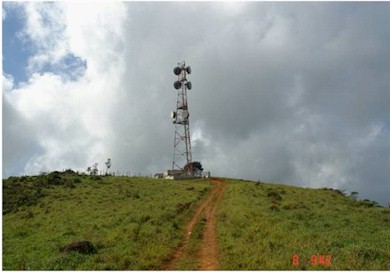
2.- STRATEGY FOR SOCIAL INCLUSION
a) EXPANSION OF TELECOMMUNICATIONS COVERAGE
In that respect, the expansion of
telecommunications coverage is being achieved by
applying a policy by the telecommunications sector
that promotes investment, encourages the private
sector to invest and expand their operations.
This will also help new
competitors to enter the market, since global
experience shows that competition –if fair and
honest- is indeed the best regulator.
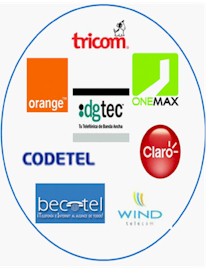
Telecommunications contributes to
significantly increase the wellbeing of society.
This can be seen with greater intensity when
telecommunications is first made available in
isolated communities: It is like going from a pitch
black night into the brightness of day.
International studies show –just
to name an example- a highly positive relationship
between cell phone ownership and an increase in GDP,
a 10 point increase in cell phone penetration is
associated with a 0.5 growth of the Gross Domestic
Product (GDP). “That is to say, it improves
productivity in areas that did not have the service
before.”
Those who were born in cities
with services do not feel the difference, but people
who were born in rural areas, with no utilities, do
see and feel the huge difference that it makes in
their lives to be able to contact their friends and
family, many of whom have migrated to big cities or
abroad.
Also, being able to access timely
information on product supply and demand for
convenience stores, merchants and businesspeople,
having the opportunity to make health queries, and
with the arrival of high speed Internet, having
access to the world’s information, and not only
access, but also the possibility to interact by
sending and receiving information of all kinds.
According to data by the Central
Bank of the Dominican Republic, investments on
telecommunications in the country reached 2.4
million dollars over the last 15 years and the
sector accounts for 15% of the Gross Domestic
Product (GDP), one of the main sectors in the
country and one of the highest if compared to other
countries in the region.

The abovementioned macroeconomic
figures ratify that these policies are booming, but
it is also true that, as with the rest of the world,
companies are not interested in expanding their
services to rural areas as they consider that there
is no market and the ROI would not be guaranteed.
That is what happens in the Dominican Republic and
while the five main cities in the country show
lively competition and a wide variety of services;
rural areas remain short of services.

To overcome this challenge,
INDOTEL has applied two policies.
The first one was to show, via
pilot programs, that the unserved rural sector is
hungry for services, that they want to have those
services and that they are willing to pay for them.
The best example in that sense is
what happened in Los Botados de Monte Plata, a small
town located just 35 km from the capital city, where
up to November 2007 no public phones were available
for the population to use in case of an emergency.
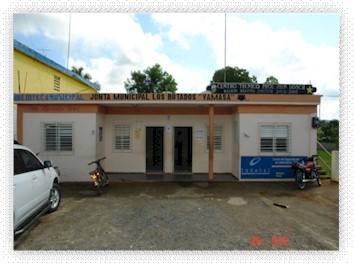
In Los Botados, it was evident that people were
eager for technology, that young people even knew
how to assemble and disassemble computers, which
caught the attention of carriers. Today, the people
of Los Botados have broadband Internet connection
even outside their home, have home services from
Claro-Codetel and they can choose between cell
phones offered by Claro-Codetel or Orange and
shortly by Viva.
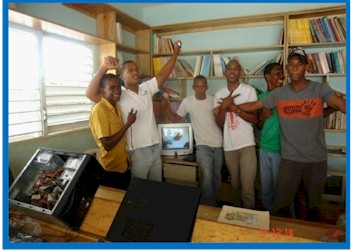
That is to say, through a
practical experience we have encouraged companies to
have a second look at rural areas and the vast
expansion of cell phone coverage can now be seen as
it now encompasses most of the Country.
That meant the accomplishment of
the first goal, which was for the market to do its
job, but that was not enough and a project was
designed for inhabitants of all the towns and
municipal districts in the country and 179 spots of
the poorest 16 provinces to have the possibility of
having home phones and broadband Internet.
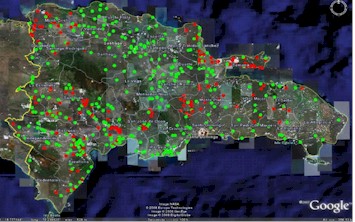
An international call for bids
was issued for that project and Claro-Codetel was
the awarded bidder and the project is now in the
execution phase. Completion is scheduled for
September 2009. 108 localities are already enjoying
those services.
For the services –whether
telephony or Internet- to reach the largest portion
of the population and especially the underprivileged
who cannot afford a landline or cell phone nor buy a
computer, INDOTEL is promoting the setting up of
Internet and call centers, from where those people
will be able to place their calls and go online at a
reasonable price.
With those two policies and
activities we are growing the infrastructure and the
population is gaining access to telecommunication
services either from their home or from public
access centers.
b) TRAINING CENTERS ON
INFORMATION AND COMMUNICATION TECHNOLOGIES (ICTs)
For most of the population to
have the opportunity to be trained on new ICTs,
INDOTEL launched a project for setting up IT
Training Centers (CCI) which jointly with the
Community Technological Centers of the first lady
(CTC) and other initiatives by NGOs, communities and
churches, they make it possible for the population
at large to have access to training, learn how to
use a computer and acquire basic IT skills.
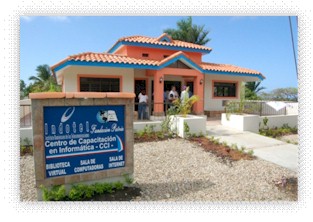
In the case of INDOTEL’s CCIs,
where sustainability depends on community
organizations, young children and adults have access
to free courses and as broadband Internet is made
available they connect to the world and join the
society of the 21st century, at no cost whatsoever.
That is to say that in the almost
900 knowledge rooms that INDOTEL has set up
throughout the country, the population has the
opportunity to learn, be trained and increasingly
get connected to the world.
IT Training Centers have been set
up for all sectors, among which we can highlight
centers for the blind, the deaf-mute, the motor
disabled, doctors, the military and even in prisons,
where trainees can receive their training. Community
centers, grassroots organizations, churches,
universities and many other educational centers also
have this infrastructure. We can assert that there
is no social group that has not benefited from this.

c) FUND FOR ACADEMIC EXCELLENCE
FOR THE TRAINING OF TECHNOLOGISTS
INDOTEL has created the fund for
academic excellence to feed the brains that will
enable the country to make a technological takeoff.
The goal is to allow underprivileged, outstanding
youngsters from the Dominican Republic to pursue
their two-year technological studies at the
Instituto Tecnológico de las Américas (ITLA). So
far, over 1,300 youngsters have been granted these
scholarships that cover their tuition fees as well
as lodging expenses.
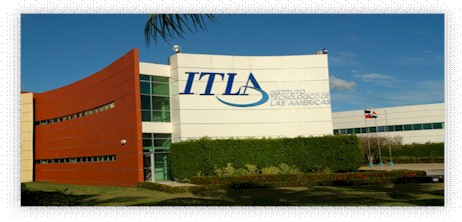
d) ENTREPRENEURIAL TECHNOLOGICAL YOUTH (JUVENTEC)
INDOTEL, together with the
Instituto Tecnológico de Las Américas (ITLA) and the
Instituto de Formación Técnico Profesional (INFOTEP)
will grant over 5,000 scholarships for
underprivileged, young people from any place of the
country to take certification courses and online
workshops, and in that manner boost the
technological development of communities.
The main Objective of this
program is to strengthen the entrepreneurial spirit
of underprivileged, young people from the various
communities of the country, and turn them into
protagonists of their own professional development,
by generating business initiatives and high quality
and competitive level services.
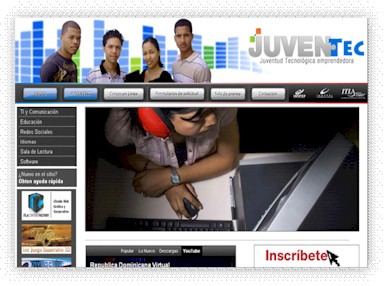
Eng. Edwin San Román
International Consultant of INDOTEL
Dominican Republic |












